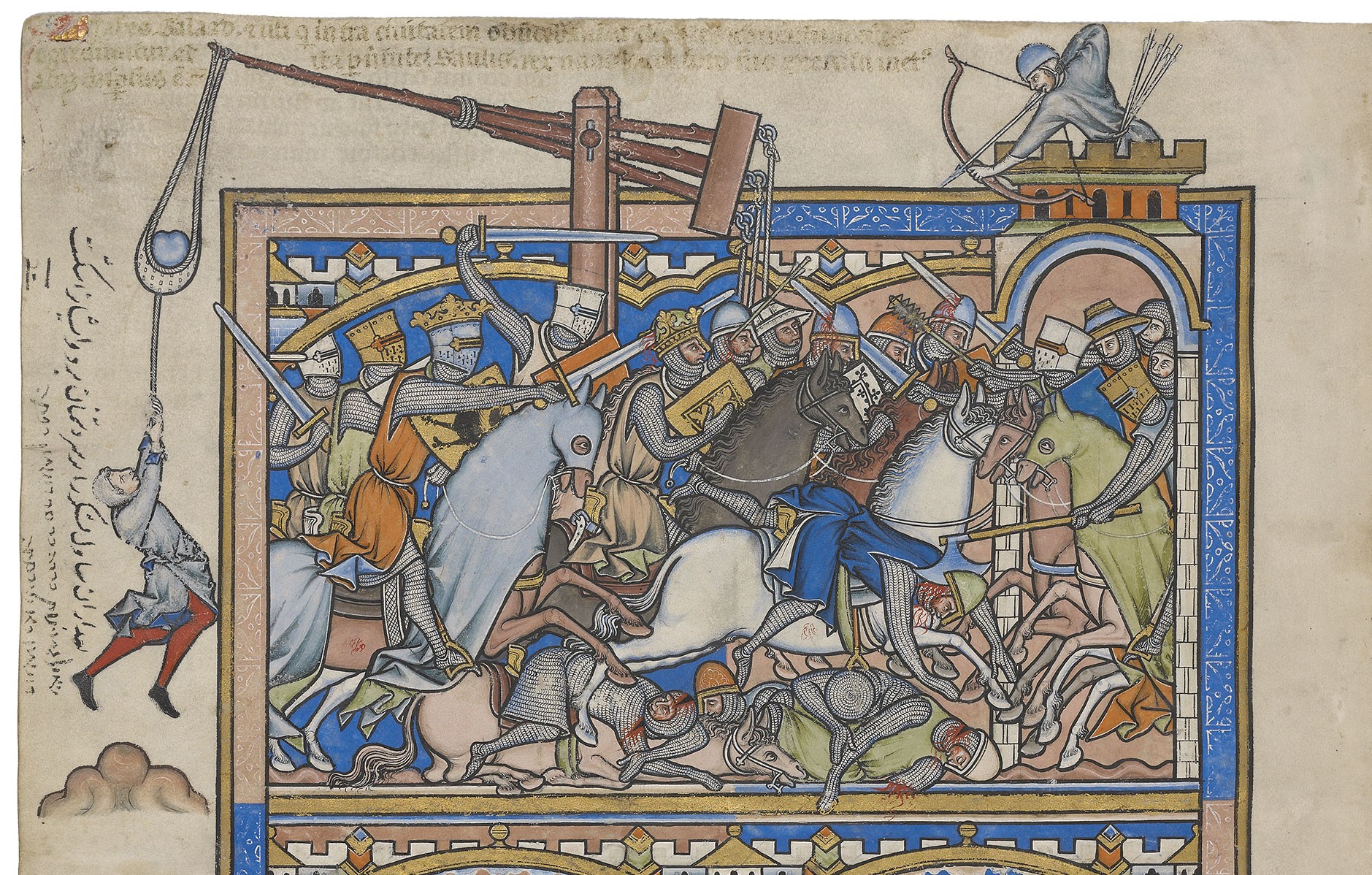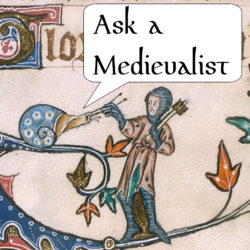Synopsis
Just in time for Paris Fashion Week, join Em and Jesse for an exciting discussion of sumptuary laws and the medieval origins of prohibitions against wearing white, as well as a few digressions about John Waters films and Blackadder.
Notes
0/ Rainbow Space Magic Con: https://www.rainbowspacemagic.org/
1/ Serial Mom: (warning for violence) https://www.youtube.com/watch?v=lnGHB-kI2ZM
2/ If you’re interested in the history of weddings, I suggest Carol Wallace’s All Dressed in White: The Irresistible Rise of the American Wedding, Penguin Books, 2004.
3/ Margery Kemp: see episodes 6, 7, 8, 9, 36, and 49. Jeez, it’s like we never STOP talking about her. We should call this the Margery Kemp Power Hour.
4/ Mary C. Erler, “Margery Kempe’s White Clothes.” Medium Aevum 62 (March 1993): 78-83.
Jesse Njus, “Margery Kemp and the Spectatorship of Medieval Drama,” Fifteenth Century Studies 38 (2013): 123–51.
5/ “Tide Pods: the universal currency” is a random thing my husband said in his sleep one time that will now forever live in my head. And, hopefully, yours.
6/ We talked about the plague in EPISODE TWO. Go check it out.
7/ To clarify, England was England in 1363—but it wasn’t the UK. Scotland didn’t join until later (after 1603 when James I took the throne, and then formally with the Act of Union in 1707).
8/ The rolls of Parliament: https://www.british-history.ac.uk (Unfortunately, I think library access is needed to log on–check your local library’s access!)
Edward III: October 1363: https://www.british-history.ac.uk/no-series/parliament-rolls-medieval/october-1363
Edward IV: April 1463: https://www.british-history.ac.uk/no-series/parliament-rolls-medieval/april-1463
Side note, remember that at this point, the king had some soldiers, but if he was fighting a war he’d call upon his lords (the dukes and earls and such) to bring men to fight. Armies were kind of a distributed thing. So he needed the country to have money so the wealthy could bring soldiers to come fight.
9/ Henry IV took the throne in 1399 and his son became Henry V in 1413. I am suddenly understanding the jokes about Henry V not speaking French very well in the play of that title in a different, more political light.
10/ Blackadder: Here is the clip where they talk about the robe: https://twitter.com/pitchblacksteed/status/1294974184183996416?lang=en
Here is another clip where the robe (and collars) are clearly visible: https://www.youtube.com/watch?v=jD2iYSKHHzo
11/ In 1363, 100 GBP would be about 76,777.23 GBP in 2023 dollars. Five hundred GBP is 383,886.16 GBP today. Straight inflation isn’t always a good way to track buying power, because the price of goods and services vary significantly over time (think about the price of college in the year 2000 vs the price of a pizza compared to the price of both now). But this calculation does give some sense of how much money 500 GBP a year was. In Pride and Prejudice, Mr. Darcy has 10,000 pounds a year—about 800,000 pounds today, give or take. No wonder Mrs. Bennett loses her mind when he proposes.
Anyway, you can check out the calculator here: https://www.bankofengland.co.uk/monetary-policy/inflation/inflation-calculator
12/ Marginalia of shoes: https://www.tumblr.com/cuties-in-codices/727178156069552128/shoes-in-ehrenspiegel-des-hauses-%C3%B6sterreich?source=share (this is actually from 1555, but you see what I mean)
13/ The plays are (surprisingly, maybe), Henry VI, parts 1 (http://shakespeare.mit.edu/1henryvi/index.html), 2 (http://shakespeare.mit.edu/2henryvi/index.html), and 3 (http://shakespeare.mit.edu/3henryvi/index.html). There’s also an Edward IV in two parts by a chap named Thomas Heywood (https://en.wikipedia.org/wiki/Edward_IV_(play)).
[Edward IV also famously appears in Richard III.–JN]
14/ Ermine: https://en.wikipedia.org/wiki/Stoat
Sable: https://en.wikipedia.org/wiki/Sable
15/ Wives and children of nobility are generally addressed as “lady” and “lord,” depending on rank and whether or not the father has any subsidiary titles. So in a household of the Duke of Buckingham, who has a family surname of Castleman and no subsidiary titles, the duke himself will be formally addressed as “Your Grace” when he goes somewhere for tea, or announced at the ball as “His Grace the Duke of Buckingham.” His wife will be “Her Grace the Duchess of Buckingham” on invitations and “Your Grace” when she goes to tea. The son will be “The Lord Charlie Castleman” on invitations and “Lord Charlie” at tea parties, and the duke’s daughter will be “The Lady Ariella Castleman” when announced at the ball and “Lady Ariella” at tea. If she marries a commoner or someone beneath her in rank (the son of a baronet, earl, viscount, or baron), she may choose to retain the title Lady Ariella. Interestingly, the daughters of dukes rank between the eldest son and the younger ones in terms of precedence.
FOR AN EXHAUSTIVE EXPLANATION OF THIS, SEE https://www.chinet.com/~laura/html/titles12.html.
16/ The stuffing of clothing/wearing of padding in order to attain the fashionable shape is something I kind of wish hadn’t gone away. It persisted all the way up until the 1920s, when women’s clothing suddenly abandoned the majority of the underpinnings that had been necessary (corset, bum roll, petticoats, hoops or cages, etc.). Now women are largely expected to change their bodies in order to attain a fashionable silhouette instead of the clothes doing it. Unfortunate.
17/ We discussed Mankind in episode 1(!!!) note 23.
18/ We discussed female silk workers in episode 33 (the notes for the episode include sources for more info on women silk workers).
19/ We talked about Judenhutte in episode 10 (notes 31 and 39), episode 25 (note 14), episode 41 (note 7), episode 45 (note 10), and episode 61 (note 2). Also see Sara Lipton, Dark Mirror: The Medieval Origins of Anti-Jewish Iconography, Metropolitan, 2014. Link.
Podcast: Play in new window | Download

